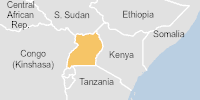Stay Informed: Weather, Earthquake, and Tsunami Alerts

Understanding Recent Events: Uganda Floods
From October 29 to October 31, 2025, Uganda experienced severe flooding, resulting in nine fatalities. Fortunately, no individuals were displaced. This information, sourced from the Global Disaster Alert and Coordination System (GDACS) and its partners, is preliminary and subject to updates as more data becomes available.
Preparedness: Your Best Defense
Regardless of the alert level, being prepared is crucial. Regularly review and update your local emergency plans. Ensure you have a well-stocked emergency kit and know the safest routes for evacuation. Familiarize yourself with the specific risks in your area, whether they involve floods, earthquakes, or tsunamis.
Trustworthy Information: A Key to Safety
In times of crisis, it’s vital to rely on information from credible sources. Avoid spreading or acting on rumors. Always verify alerts through official channels such as government websites or trusted news outlets. This approach helps prevent panic and ensures you receive accurate guidance.
Stay Calm and Follow Local Guidance
Remaining calm during emergencies is essential. Follow instructions from local authorities and emergency services. They are equipped with the latest information and are best positioned to guide you safely through the situation.
Recent Global Trends and Statistics
With climate change influencing weather patterns, the frequency and intensity of natural disasters are increasing globally. According to recent data, the number of extreme weather events has risen significantly over the past decade, highlighting the importance of preparedness and awareness.
Conclusion: Proactive Measures Save Lives
By staying informed, preparing adequately, and following official guidance, you can significantly reduce the risks associated with natural disasters. Remember, your actions can make a difference in ensuring your safety and the safety of those around you.
